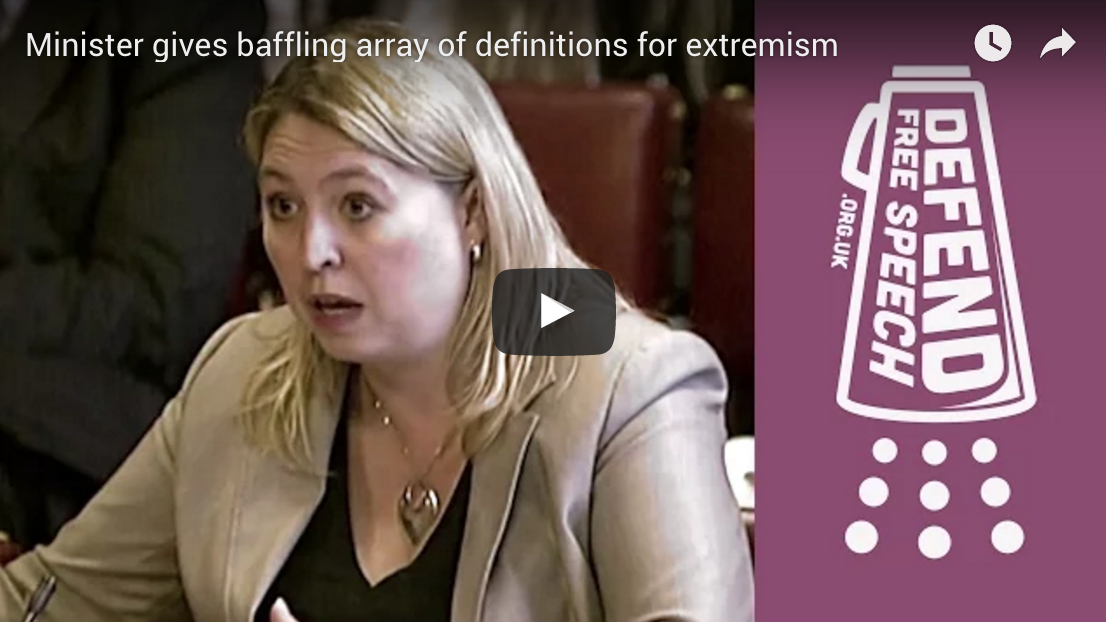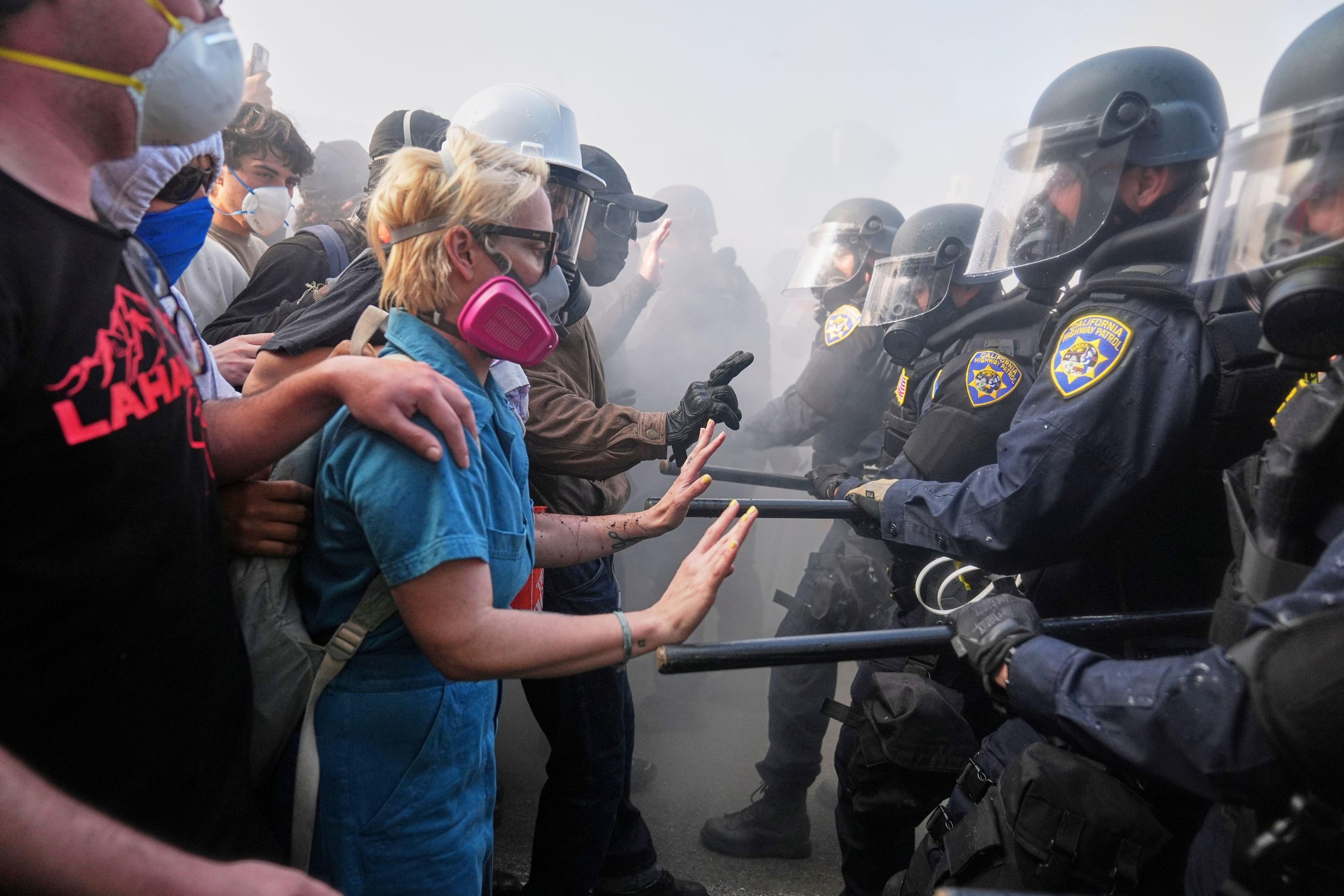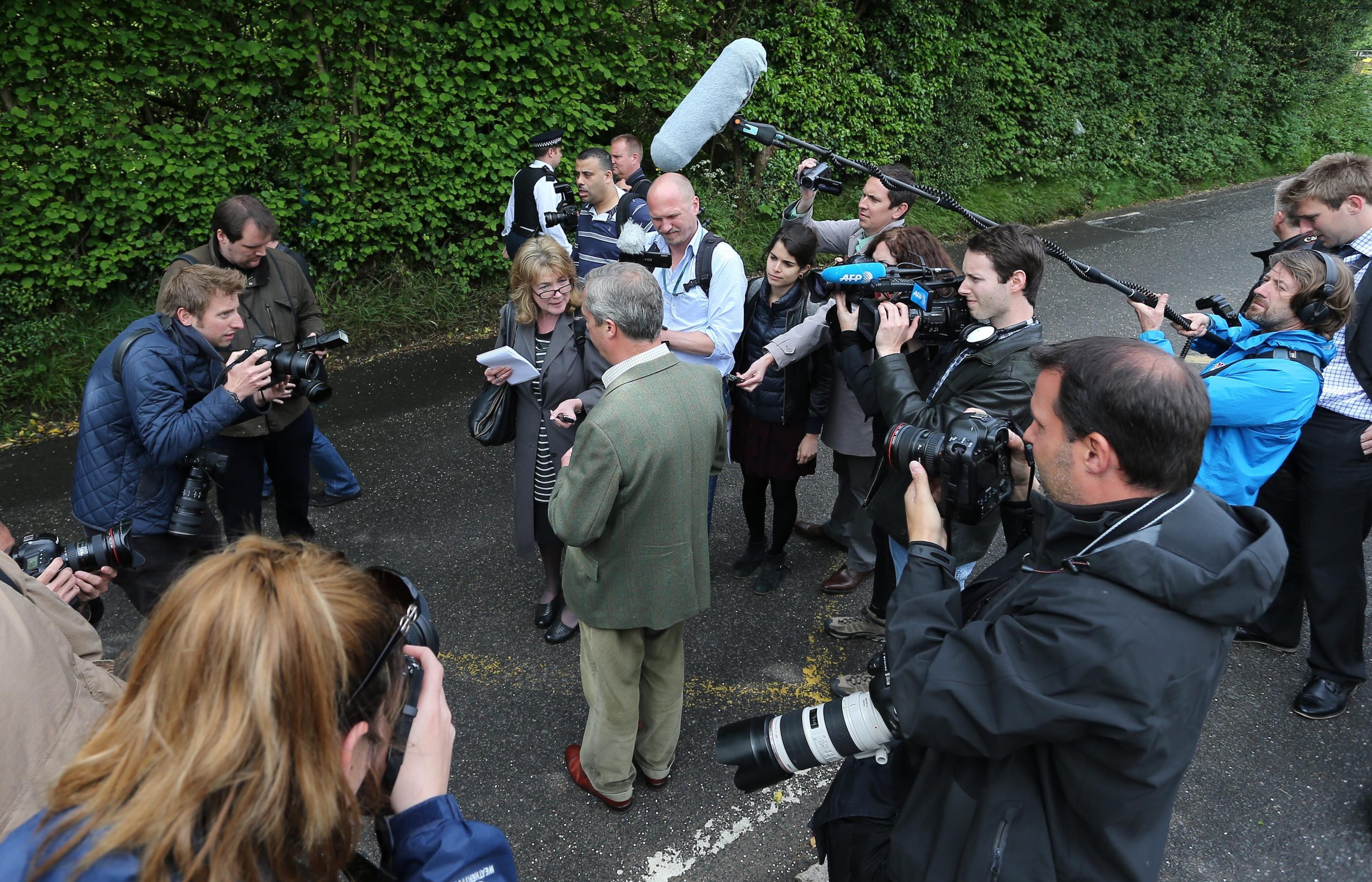Index on Censorship is part of the Defend Free Speech campaign against the introduction of new freedom of speech laws. The following is a letter by Defend Free Speech’s campaign director Simon Calvert.
It was with considerable alarm that we watched the recent evidence session of counter-extremism minister, Karen Bradley, before Parliament’s Joint Committee on Human Rights.
In a little over an hour, Mrs Bradley put forward no fewer than ten possible definitions of ‘extremism’, including: “The public promotion of an ideology that can lead to greater harms”; and “publicly promoting an ideology where the activity they are undertaking is not criminal and does not go beyond reasonable doubt but we know that that activity leads to a hate crime, a terrorist activity, or maybe FGM”.
We wrote to the minister to set out our fears. Here’s what we said:
The Defend Free Speech campaign, and many of the groups associated with it, are greatly concerned that the proposed ‘civil orders regime’ will damage both security and civil liberties. They risk distracting the authorities away from terrorism and violence and into monitoring and punishing legitimate expressions of opinion.
Finding terrorists and their enablers is like finding a needle in a haystack. Forcing the police and security services to operate at the much lower threshold of ‘non-violent extremism’ will massively increase the range of people and ideas under investigation, thereby making the haystack considerably bigger. Placing millions more people under suspicion is more likely to mask the activities of terrorists than to highlight them.
Your difficulty in articulating a clear, consistent definition of the kind of activity the Government aims to punish via civil orders was very concerning. The Home Office has been working on the issue for well over a year and yet the impression was given that the Government still has no clear idea how to legislate for what it wants to achieve.
Harriet Harman summed up the situation accurately when she told the committee:
Still we don’t know what civil orders are being talked about, we don’t know what the sanctions are likely to be, we don’t know what the definitions are, we have no specificity about the timetable in terms of when the consultation will start, how long it will be. We know there won’t be a draft Bill, but we really are none the wiser about anything else’.
We were grateful that you confirmed that there would be a public consultation. But for the consultation to have any value, and for stakeholders to have a meaningful opportunity to influence the outcome, it must include precise statutory definitions that can then be subjected to scrutiny.
As members of the Committee pointed out, a consultation will be worthless if it does not give the actual wording with which the Government intends to resolve the tension between security and liberty. As it is, the planned consultation looks more a fishing expedition, carried out in the hope that somebody somewhere has a good idea of how this legislation could be drafted.
We concluded by requesting an urgent meeting with the minister, and reassurances of a further consultation when the Home Office can tell the public how it actually plans to legislate in this incredibly sensitive and important area.
As we said quite clearly to the minister, when the matters at stake include terrorism and the fundamental civil liberties of millions, the Home Office cannot simply shrug its shoulders and say ‘we’re not sure what we’re doing’.
The groups backing Defend Free speech wrote to the Home Office back in January requesting a consultation on Extremism Disruption Orders. Having failed to respond for five months, the Government finally conceded the need for such a consultation in the Queen’s Speech in May.
Thank you for standing with us to Defend Free Speech.
Best wishes,
Simon Calvert
Campaign Director
Defend Free Speech






